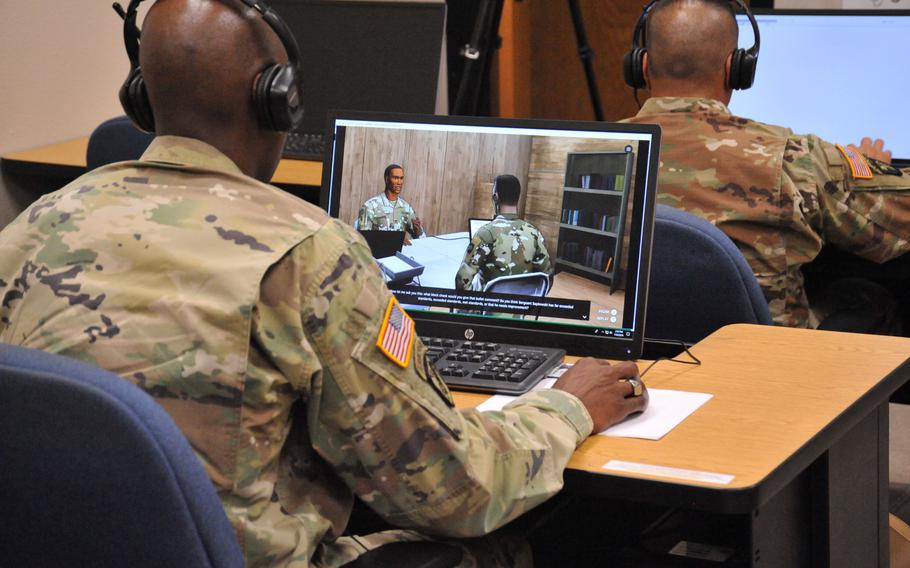
A soldier works on a distance learning course at Fort Bliss, Texas in 2018. The Army is eliminating approximately 346 hours of online courses, including training on the enlisted and officer sides. (Danielle O’Donnell/U.S. Army)
The Army has eliminated hundreds of hours of online training courses that service officials say no longer serve a purpose.
Enlisted soldiers are no longer required to take Distributed Learning Courses one through six, which account for 253 hours of mouse clicks and keyboard entries.
On the officer side, the Distance Learning Prerequisite for Commanders Career Course and the Distance Learning Prerequisite for Commanding General Staff Officers Course are no more. The two courses account for a total of 93 hours.
“We are scrubbing everything we are asking our Soldiers to study, because there is only so much time during the day to do your job,” Sgt. Maj. of the Army Michael Weimer said Wednesday in an Army statement.
The Army originally developed the DLC courses in 2010 to improve decision making, communication and leadership skills.
In October of last year, The Army chief of staff directed the Training and Doctrine Command to pare down online training requirements.
After careful consideration, the Army determined that there would be little to no negative impact to the cuts it made, Bill Ogletree, director of training and education at the NCO Leadership Center of Excellence, said Wednesday in a statement.
Weimer said the Army has to do some subtraction to make sure “what we are teaching in all those areas is quality, not quantity.”

